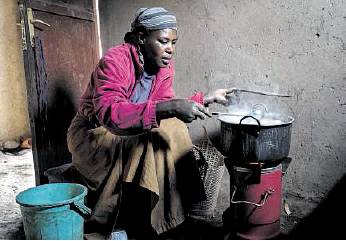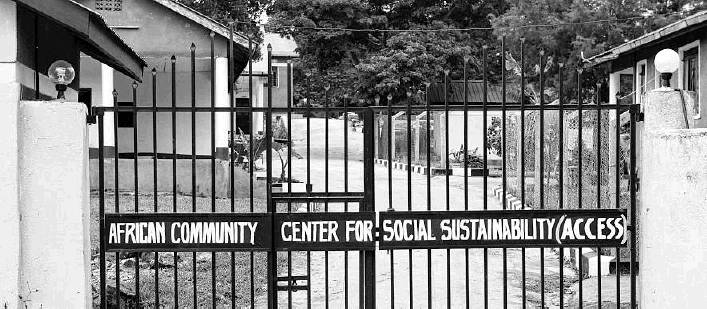Nobel-winning research reveals the truth behind poverty
CHRIS TOMLINSON Commentary
Every time I write about poverty, a chorus of older, well-to-do men tell me that people get what they deserve.
I wonder what perfect world of economics they live in because that’s not what I’ve seen in 25 years of reporting from around the world. Neither is it the world inhabited by the three American economists who just won the Nobel Prize.
Research has long shown that where you end up has a lot to do with where you start. But Abhijit Banerjee, Esther Duflo and Michael Kremer prove that the poor also know better than condescending outsiders about what they need to succeed.
Kremer, who teaches at Harvard, first began experimenting in the 1990s with educational and agricultural aid programs in western Kenya. I was there also and saw that those programs needed work, but that’s changing.
“The combination of deep engagement on the ground with intellectual rigor is producing very exciting work, both in terms of understanding the world and in helping to provide practical solutions,” Kremer told the Harvard Gazette.
Banerjee and Duflo, who teach at MIT, worked with Kremer and have spent decades tracing the roots of poverty. One key question has been how much of poverty is attributable to personal responsibility, and how much is from external factors. The answer is both.
Yes, some of us make bad decisions. But most people in poverty never had a chance because they never had access to critical resources, such as quality education, good health care or gainful employment.
I covered economic development in Africa for 14 years, visiting dozens of aid projects and summarizing hundreds of theories about how to help the 1.2 billion people living in poverty. I’ve witnessed highly educated people from wealthy nations assume they know how to fix problems that local people have lived with their entire lives.
Typically, the outsiders arrive with an agenda, or a theory they are trying to prove. Or they represent a government with a policy prescription that benefits their homeland, whether it helps the impoverished or not. The locals know better than to turn down any kind of help, even if it seems nonsensical.
Flawed aid programs have wasted billions of taxpayer dollars over the decades, and reinforced stereotypes about egg-headed professors and poor communities.
The Nobel laureates took a different approach, putting poor people in charge of their future and providing direct support to families rather than large-scale, social-engineering schemes.
In their book, “Poor Economics: A Radical Rethinking of the Way to Fight Global Poverty,” Banerjee and Duflo explained how they closely observed poor people on five continents, listened to how they viewed their poverty and asked what those people would do to improve their lives. The husband-and-wife team then used randomized, controlled trials to see which interventions worked.
In two years of experiments involving 11,000 households in Ethiopia, Ghana, Honduras, India, Pakistan and Peru, a team of economists led by Banerjee and Duflo provided livestock and business grants, short-term cash infusions, food stipends, health services, vocational training and savings accounts with tight rules about withdrawals.
One year after the programs ended, participants were consuming 7.5 percent more food, had a 14 percent increase in assets and saved 96 percent more, on average, than their peers who did not participate, according to results published in the journal Science.
The laureates discovered that locally proposed interventions that may have seemed counterintuitive to a Western-trained economist often worked with stunning success. The grand lesson, though, is that there are no grand lessons. Every community needs help with different things, and the people who live there probably know best.
“What we want to do is try and unpack the problems (they face) one by one and address them as rigorously as possible,” Duflo told reporters on a conference call.
Too many people, though, believe poverty is some kind of divine punishment, or that alleviating poverty creates dependency. But poverty has dropped over the last 50 years, with many families moving into the middle class. When that happens, it boosts the economy for everyone.
Rising standards of living expand business activity. When people transition into the middle class, they buy more stuff. They raise healthier children who attend improved schools and become better employees.
By applying the scientific method to poverty programs, the laureates proved David Bowie’s 1972 retort to the condescending, well-to-do men in his song “Changes”: “And these children that you spit on, as they try to change their worlds, are immune to your consultations. They’re quite aware of what they’re goin’ through.”
Tomlinson writes commentary about business, economics and policy. chris.tomlinson@chron.com twitter.com/cltomlinson


